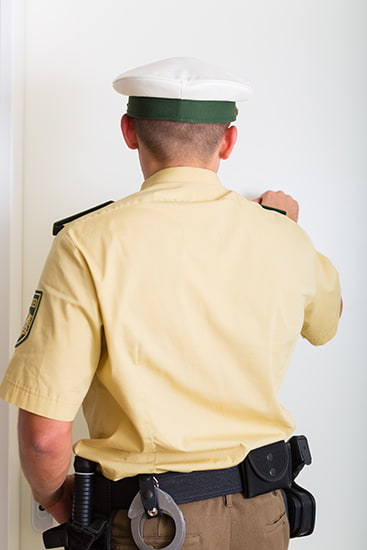 Police interactions are one of the most stressful situations an individual can go through. Oftentimes, individuals may not be aware of or fully understand why the police have approached them or initiated the interaction in the first place. Or even if they do, they may find that the officer’s questions or accusations are not clear or confusing, and therefore may answer questions in a manner not beneficial to themselves. Regardless of the circumstances surrounding an interaction with police, it is important to know how to handle the situation and how to avoid unnecessary legal problems.
Police interactions are one of the most stressful situations an individual can go through. Oftentimes, individuals may not be aware of or fully understand why the police have approached them or initiated the interaction in the first place. Or even if they do, they may find that the officer’s questions or accusations are not clear or confusing, and therefore may answer questions in a manner not beneficial to themselves. Regardless of the circumstances surrounding an interaction with police, it is important to know how to handle the situation and how to avoid unnecessary legal problems.
The best legal advice is still to avoid all unnecessary contact with law enforcement. One of the biggest factors that gets individuals into unnecessary legal trouble is offering themselves up for “avoidable-incrimination,” or even to allow the situation to escalate beyond its original purpose. This is especially true in situations such as police coming to the door and asking to speak with a specific individual. Avoiding any unnecessary contact can often be the difference between an individual catching additional misdemeanor or felony charges or potentially avoiding charges altogether by not providing the police with enough information to charge.
When police come to the door, often the question comes up – do you have to answer the door for police? Many individuals believe that they need to answer, even if it’s just a simple “no thanks”. However this is not true. If a police officer is unsatisfied with not receiving a response during attempts to reach an individual and they have an actual reason for doing so, there are other methods to go about contacting an individual.
How to Minimize Police Contact
In practice, standing your ground and avoiding unnecessary police interactions can be very difficult for people to implement. In order to assist individuals facing these circumstances, below is a step by step guide on how to minimize police interactions, especially when they are attempting to make contact when someone is behind a closed door in their dwelling.
1-2-3, When Police Knock For Me:
1) Wait? Give yourself a minute to put a shirt on if needed. Before opening the door, ask the nature of the police visit. If the police have a warrant, then they’ll likely make that fact known before bursting through the door. If they don’t, then there’s no harm in delaying the encounter until after you’ve called your lawyer.
2) Warrant? If the police tell you they have a warrant for the house or people in it, open the door and ask to receive a copy of the warrant. At very least, confirm the warrant has the correct address and/or people included.
3) Welcome? If you’ve called the police yourself, obviously open the door – but not before confirming the name of the police department and the nature of their visit. Remember that contact with police typically comes in three forms: victim, witness, or suspect.
4) Worried? If you’ve been drinking, using marijuana, or taking any other prescribed or non-prescribed controlled substances (especially those which affect speech, attention, and fine motor skills) – do not open the door! In these circumstances it is important that someone else answer the door if it is absolutely necessary. When doing this, make sure you follow these 3 Pro-Tips!
If you’re alone or your guests prefer not to open the door, call a lawyer; leave a detailed message if no answer. Then, after following the 1-2-3, and determining the police department and nature of their visit being one that is not accompanied by a warrant, you don’t open the door unless your lawyer tells you otherwise. If you’re still waiting on an answer from your lawyer, you don’t yet have a reason to open the door.
In the event your attorney does not reach out in a timely manner, it is advised to seek out another criminal defense attorney as soon as possible. The longer you wait the higher the chance you will end up having an unnecessary and potentially self-incriminating interaction with police. It is your attorney’s job to speak with police and ensure your best interests are protected.

Michael B. Kelly
Kelly & Kelly, P.C.
422 E. Main Street
Northville, Michigan 48167
(248) 348-0496
[email protected]




